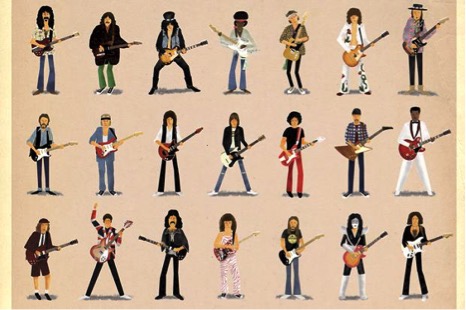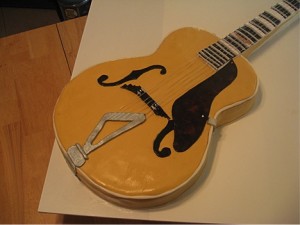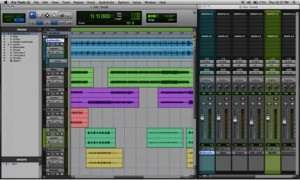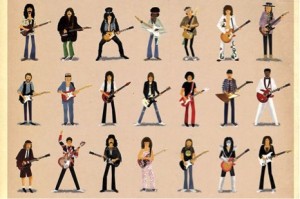
Vincent’s Tips on Tones
Issue 17
“You are what you eat” is an expression we all know and understand as truth. Simply put, if you want to live a healthy and balanced life, you need to eat a healthy balanced diet. That said, the expression can be used with a much more metaphorical meaning for a number of different things. Your experiences, your friends and what you surround yourself by play huge parts in the person you are. Often you have no choice but to live through something that can change you for the better or worse. On the other hand, there are many things you have the ability to choose from that will have an impact your life, or at least some aspects of it. Music is one of these things.

For a musician, what you listen to plays a large role in what you end up creating, whether you are trying to or not! We are like sponges. We hear something we like, it soaks in, and later on it leaks out in our writing, playing, and the tones we decide to create. I can recall more than a few occasions where I’ll be listening to a track, and then hear a riff that sounds almost identical to something I’ve written without having any intention of doing so.
Keeping this in mind, you can actually increase your guitar “vocabulary”, and, in a roundabout way, improve your guitar tone without even having an instrument in your hands.
Here are some things to consider:
1) Listen to various genres
Even if you know the style you want to play or create, try not to limit your listening to that genre.
The most famous and signature guitar tones out there were not created by someone re-hashing something that had already been done, but by blending a variety of influences and sounds. Tony Iommi didn’t have a metal band to listen to for inspiration and look what he created! You’ll find that different genres call for different tones, and you will grow to appreciate subtle nuances that you can incorporate into your own playing and writing.
2) Try to isolate the guitar
The overall sound of a song is comprised of all the instruments mixed together. So, sometimes when you try and recreate a tone while playing by yourself you can over compensate in some areas. Adding extra gain, treble or reverb are a few examples. It might sound great alone, but throwing that into a band situation may just make everything sound muddy and convoluted. You’d be surprised to hear how some of your favourite songs’ guitar tracks sound on solo! It’s tricky, but try going back and forth between isolating the guitar in a song and then listening to the whole mix.

3) Study and analyze different players
Ask two guitar players to play the same riff with the same guitar and each will sound different. Did they just play a hammer-on or did they slide to that note? Was that the open D string or the A string in the fifth fret? How fast is their vibrato? What is their note selection and phrasing like?
These are all things that every guitar player does slightly different from another, resulting in a unique play style and tone. Usually you will be able to find repetition in a player, and if you can tap into that then you can expand your repertoire in no time.
Put it this way: your guitar, your amp, and your foot pedals are all inanimate objects. Sure, they will sound different depending on what they are and how they’re set, but it’s you who is actually telling them how to sound.



